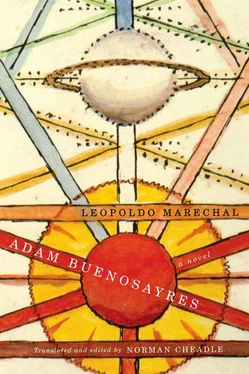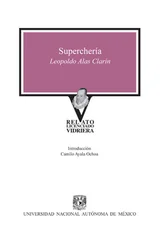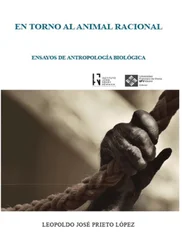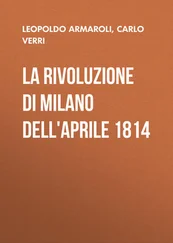”I don’t know if those childish manifestations were signs that I had a curiously premature “tragic sense of life.” 173And as this suspicion forms in my mind, I recall another childhood episode, also considered funny, though not by me. Every year at Christmas, my mother made us all write greeting cards to our Aunt Ursula in the town of Rauch. The cards showed a dove carrying a message in its beak, and one year my mother urged us to write a “thought” as was the custom in those days. My brothers resorted to commonplaces like “Fly, little card, fly!” or the phrase “When you open this card” followed by the appropriate good wishes. I, however, after chewing a good while on the tip of my pen, wrote the following aphorism in the upright, well-rounded hand for which I was praised:
Whatever they may say,
Death isn’t as terrible
as it’s made out to be. 174
”Don’t imagine, however, that my childish soul systematically ignored calls of joy. I too heeded the periodic seasons of pleasure and easily surrendered to their madness. But, by dint of self-observation, I then noticed that mine were always anticipatory joys, pleasures that withered before reaching maturity. Among the kids in the barrio, for example, I was the one who prepared the effigies to be burned in the famous bonfire at the Fiesta de San Juan. 175Gentlemen, what preludes of jubilation my heart would sing as I stuffed old clothes with paper and wood shavings, painted faces on the puppets, and stuffed their big goofy heads with the fireworks whose explosion would signal the end of the bonfire! But the long-awaited night would arrive; the kids would gather a heap of combustible objects; I would place my puppets on top; the bonfire would rise up amid the deafening shrieks of kids dancing around the crackling flames; and I, with one foot already on the threshold of happiness, would suddenly grow still and feel my heart shrivel like a leaf as I stood by the fire of Saint John the Baptist. The upshot was that I’d creep away surreptitiously to look on from afar, the rejoicing of the other children now strange and incomprehensible to me. The build-up to Carnival likewise aroused my expectations of joy. I had a clown suit. A few days before the fiesta, my mother would fetch it from the trunk to air it out and give it the ritual ironing. You can’t imagine how I trembled with anticipated happiness at the tinkle of the costume’s bells, the smell of its cloth, the capricious designs on what was meant to be the livery of my shenanigans. Finally the great Sunday of Sundays would arrive. Along with my brothers — they too donning costumes and glass beads — I would stuff myself into my tinkling disguise and let my face be daubed with vermillion, cobalt, and burnt cork, as though in liturgical solemnity. Then I took off into the street, my imagination teeming with the pirouettes and antics I’d perform, the crazy things I’d say before the astonished eyes of the crowd. But once outside, face to face with the already gleeful and noisy multitude, I would suddenly feel my heart shrink, a strange internal chill abruptly deadening the effervescence of my enthusiasm. Slumping down on the doorstep of our house, there I would sit, still and alone, my chin resting on my fist, my wandering gaze observing in the others the elation of soul which seemed, alas, to be systematically denied me.
”Nevertheless, I wasn’t what they call a “a man without a childhood.” In my imagination I too lived those boyhood adventure stories that fill us with longing for the faraway. Especially in the seclusion of the tangled thicket of the back garden, where I played at Robinson Crusoe on his island, savouring the taste of paradise. My maritime adventures took place on an old, dislodged trunk-lid; aboard this ship of mine, I set sail for fabulous unnamed seas, singing made-up barcaroles or menacing pirate songs. My heroic experience was limited to a single episode, a fanciful version of the Battle of San Lorenzo; playing the role of Sergeant Cabral, from the roof of the chicken coop, I’d keel over and flop down onto a gutted, cast-off mattress, crying out his historic words: “I die content, we’ve beaten the enemy!” One time, my brothers tricked me by pulling away the mattress, and my heroics were dashed, to my great chagrin, on hard tiles of the patio.
The insect paused again at this point. I had closed my eyes to avoid the contrast between the touching human story and the bestial face recounting it. Reopening them, I found myself once more in front of the mobile spiral-proboscis, along with two faceted eyes regarding me in way I’d have to call… well, tender. Perhaps Don Ecuménico (if that really was the prodigious bug’s name) was waiting for a question, an objection, any sound at all from us that might encourage him to carry on with his story. He waited and hoped in vain, for none of us had ever conversed with a beast. His hope exhausted, he continued:
— If I’ve gone on about my childhood longer than I should have, my intention was that you glimpse in those episodes the beginnings of an uncommon personality, or the dawn of a soul whose intuitions and longings might have found expression in metaphysics or art, had they been channelled at the opportune moment. Unfortunately, no one in my home detected those revelatory clues; and my soul, its natural impulses repressed, was henceforth docile material for the sin that much later would launch it on the most curious of metamorphoses. But I’m getting ahead of events, and the sinister House of Books is still far ahead in my story.
”My childhood days came to an end. My two brothers acceded to my father’s wish and were initiated into the intricacies of the watchmaker’s trade. Averse to all manual work, and having no other skill than my elegant handwriting and a headful of useless knowledge, I was assigned to a desk at a nearby sawmill. Nothing from those adolescent years has stayed in my memory except a slight recollection of monotonous duty, the sensation of impalpable sawdust getting into our noses and mouths, a taste of tannin on the tongue, and two or three brutish faces gone grey and murky with time. Truth be told, my life story really only picks up again at a precise moment: when as a young man I met Dolores. I’ve forgotten the circumstances of that wonderful encounter, but at the time I had no doubt that for all eternity some studious angel had been pulling strings behind the screen of events so that Dolores and I would meet face to face at a certain place and time with the mathematical exactitude of an astral conjunction. Dolores had blond hair as warm and fragrant as ripened wheat swaying in the sun. Her green eyes were the colour of willow reflected in still waters, and my mother would have said her face bore the sun on one cheek and the moon on the other. If love were a woodturner, I wouldn’t hesitate to say that the maiden’s arms had been turned on the very lathe of love. I can’t describe her further, since Dolores was for me only a face, two arms, and a blue dress whose secret I dared not unveil even in imagination: so pure, back then, were my eyes, and so chaste the nature of my love! But what unprecedented shivers, what delicious presentiments of delight! And at the same time, what unspeakable anguish was caused me by the revelation of that woman! Gentlemen, in evoking this puerile story, I tell myself that man has an essentially metaphysical capacity for love: man’s love is a wing of love that errs, and wounds and defiles itself in this world, because it is a wing created only to ply the heavens. At first, there was nothing between Dolores and me but an exchange of artificial words and eloquent silences. The second revelation came to me when I received her first verses of poetry, written on pink paper and signed “Dolores”; the sentiment in her name moved me to the depths of my soul. 176Never had I heard words as musical and sorrowful as those in her poem; reading them again and again, I seemed to hear the exultation of a soul lost in this world of sawdust and smoke, a soul finding its twin, crying out in jubilation, and already casting a shadow of dire premonitions. Sure that Dolores was a creature more divine than human, I decided to rise to her level and respond by writing her my own verses. So I stayed up nights counting syllables and searching out impossible rhymes. Such grand work came to occupy my whole day, as I sat at the grimy desk in the sawmill under the inquisitive gaze of my three office-mates, Mouse Face, Ox Face, and Fox Face, all of them entertaining serious doubts about my mental health. The draft of my poem finished, I would type it out on the ancient office Remington; though rheumatic from so many bills and memoranda, the old machine, under my fingers, seemed fairly to trot with gallant lyricism. Dolores received my hymn and responded with a madrigal that left me speechless: thus did we begin a poetic dialogue whose sublimity alienated me from the terrestrial globe and made me forget the most elemental dictates of prudence. One day, as I was typing out a few stanzas on the old Remington, the sawmill manager caught me: he tore the paper out of the machine and turned red as he perused it. Without even opening his mouth, he pointed a righteous index finger at the door; Mouse Face, Fox Face, and Ox Face blanched, silently witnessing the catastrophe. It’s true that I lost my job, but on the other hand, after a brief storm at home, I felt free to devote my time entirely to the cultivation of ideal love, to encounters with the sublime woman, and above all to our exchange of poems, which promptly became frenetic. I soon discovered that it was in this lyrical correspondence that all the charm of our idyllic relationship lay. Dolores and I met less and less often, for shorter and shorter visits. The fact was that in face-to-face encounters, we had little to say to each other; on the contrary, physical proximity hindered rather than favoured the subtle commerce taking place between our souls. Given this state of affairs, I began to avoid meeting her, my interest limited to the musical epistles brought me twice a week by the mails. Dolores’s eventual disappearance was as mysterious as Dolores herself: the stream of lyrical messages simply stopped one day. I looked for her in vain, made inquiries among her neighbours. True to her enigmatic nature, Dolores had vanished without a trace. I won’t tell you now about all the weeping, idolization, and sleeplessness the eclipse of that woman caused me; nor how adoringly I applied myself to rereading and worshipping her admirable poems written on pink paper. Years later, in the sinister House of Books, I discovered that Dolores had cribbed her verses from Gustavo Adolfo Bécquer; 177and I forgave her sincerely, from the bottom of my memories. What I still haven’t forgiven Dolores is that her mysterious disappearance (which had me dreaming of an abduction by angels) was linked, as I was told later, to her sudden marriage for money to an obese importer of wines.
Читать дальше












